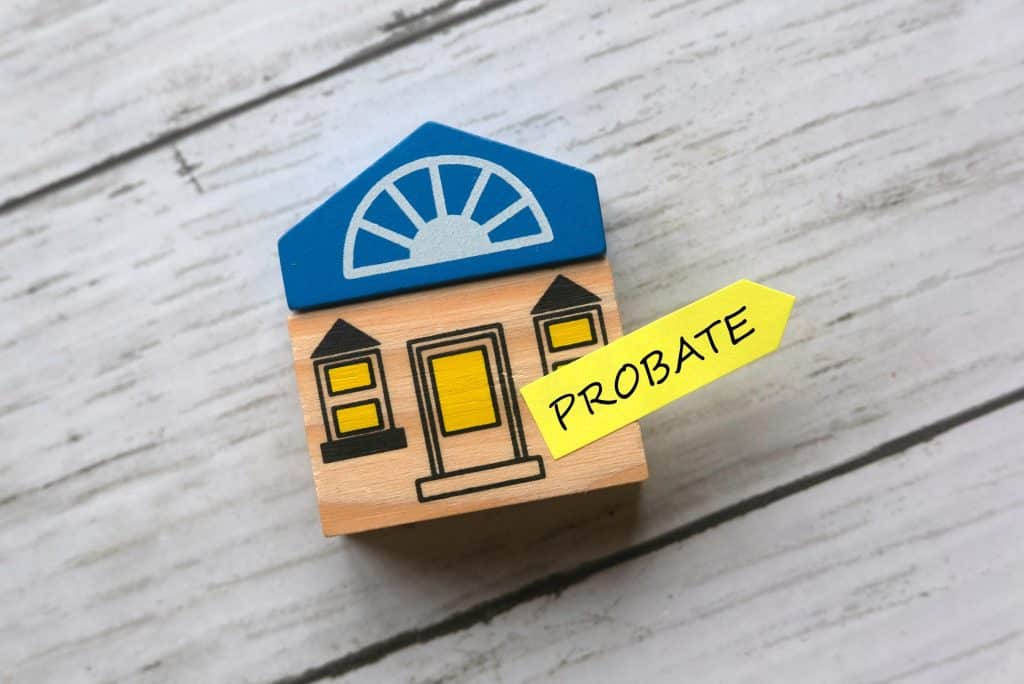Probate doesn’t just refer to the submittal of your probate application – it actually starts from the moment somebody passes away.
It’s for this reason that the process can take anywhere from just three months up to more than a year.
What is the probate timeline?
The basic stages of probate and how long they can take is set out below:
- Registering the death and making funeral arrangements (1-3 weeks)
- Obtaining an estate valuation (2-8 weeks)
- Receiving the HMRC inheritance tax letter and reference code (1-4 weeks)
- Submitting the probate application either online or via post (1 day)
- Being granted probate (1-15 weeks)
- Distributing the estate (1-12 months)
Why does probate take so long?
Handling someone’s estate is rarely quick and simple.
Ultimately, you’re dealing with the culmination of the deceased’s entire life, so it involves many different stages and processes – most of which often involve multiple parties and the need for both compassion and sensitivity.
The overall length of probate can also vary significantly depending on a number of factors, including:
Estate size and complexity
For simple estates (such as those with one UK property and some savings), obtaining a valuation and distributing it among the beneficiaries is typically much easier compared to larger, more complex estates.
Those with multiple properties, overseas assets, high-value possessions, or complex investments can prove to be more difficult to value and distribute, resulting in time-consuming delays.
Presence of a will
Unclear, ambiguous, or invalid wills that don’t meet the necessary legal requirements in the UK can all contribute to a longer probate timeline.
This is because they start the longer process of either finding the deceased’s previous valid will or dividing the estate under intestacy rules.
Potential disputes
In some cases, the will or wishes of the deceased may be disputed for a variety of reasons including concerns over will validity, interpretation disputes, or claims made by eligible individuals who believe they haven’t been adequately provided for by the deceased.
The time it takes to resolve these disputes can lead to significant delays – particularly if legal action is taken.
Inheritance tax issues
Typically, inheritance tax (IHT) must be paid before probate can be granted.
If the deceased’s executors or administrators can’t pay IHT in a lump sum, or need more time to raise the funds via asset liquidation, this can lengthen the overall probate process.
Why does probate take so long in the UK?
When asking why probate takes so long in the UK, most people are referring to the approval stage (stage 5 of the probate timeline above), so what’s the reason for the lengthy waiting period?
Put simply, there’s no reason – not anymore at least.
As of December 2024, the government announced that the average wait time for probate to be granted from the date of submittal was reduced to just over four weeks – a significant reduction compared to the end of 2023 which saw 12-week wait times on average.
Previously, however, individuals applying for probate in the UK faced longer wait times for a number of reasons, including:
Covid-19 pandemic
From early 2020 to late 2021, the Covid-19 pandemic led to an excess of deaths in the UK which subsequently had an impact on the number of probate applications, creating a huge backlog.
Paper applications
Before 2019, only paper probate applications could be submitted which have now been deemed inefficient, inflexible, and inaccessible. Following the introduction of a more modern digital service however, digital applications can now be granted in less than a week.
While paper probate applications still take longer to process (around 15 weeks on average), their approval time has also seen substantial improvement as it used to take over 22 weeks.
Lack of trained staff
As part of government’s Plan for Change to restore public services, additional staff have now been trained to support with approving probate applications, suggesting prior issues with understaffing in this area.
Specialist wills and probate legal advice
When you’re handling the estate of a deceased loved one, it’s crucial that you understand clearly the various factors that can impact the probate timeline.
This can help you to not only navigate the probate process more effectively, but also manage the expectations of any beneficiaries that might be in line to receive a share of the deceased’s money, property, or personal belongings.
At Freeman Jones, we have a team of dedicated specialist wills and probate solicitors that can guide you throughout the entire process, offering friendly, jargon-free legal help when you need it.
Whether you require will writing, probate support, or dispute resolution, you can trust our team to ensure your affairs are taken care of both efficiently and compassionately.
To schedule your free, no-obligation, 20-minute consultation, speak to our helpful team today.
Simply call us on 01244 506 444 or email your enquiry to info@fjsolicitors.co.uk.






